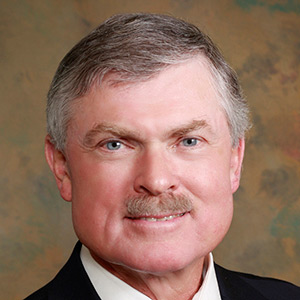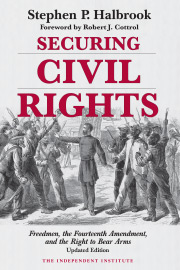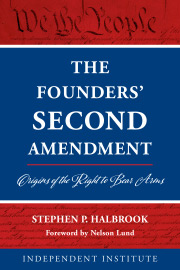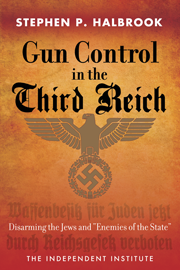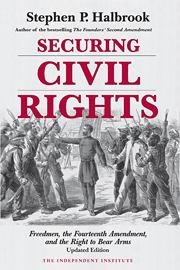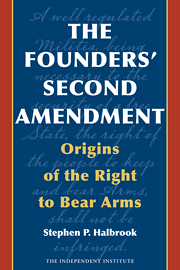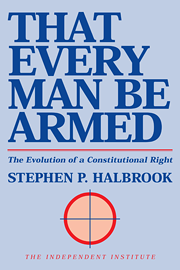On March 2, the Supreme Court will hear arguments on whether Chicago must respect the Second Amendment “right of the people to keep and bear arms.”
Mayor Richard M. Daley argues that it does not apply there, and that in “an urban landscape, the Second Amendment becomes the enemy of ordered liberty, not its guarantor.”
Ignoring those citizens who may need guns to protect their families in their own homes, Daley conjures a parade of horrors, such as “criminal street gangs with the right to carry guns” using violence “to control the drug trade.”
The Bill of Rights was originally intended to prevent a tyranny by the federal government. But when the Civil War ended slavery, the Southern states passed the Black Codes, which deprived African Americans of basic rights—including gun ownership.
The 14th Amendment to the Constitution was adopted in 1868 to prevent states and localities from violating these rights.
Today, Chicago has its own equivalent of the Black Codes, which it argues is constitutional because everyone is equally deprived of rights. In Chicagospeak, an 1866 petition of freed slaves complaining that South Carolina prohibited them from possessing firearms only sought “an equality requirement.”
But in Congress, Massachusetts Sen. Charles Sumner said they should be protected “in keeping arms” and “in complete liberty of speech”—not that they could be equally deprived of these rights.
That same year, Congress passed legislation protecting the “full and equal benefit” of laws for “personal liberty” and “personal security,” “including the constitutional right to bear arms.” “Full,” not just “equal.”
Introducing the 14th Amendment in Congress, Senator Jacob M. Howard of Michigan referred to “personal rights” like “the right to keep and bear arms,” explaining that the amendment would compel the states “to respect these great fundamental guarantees.”
Without these rights, “a people cannot exist except as slaves, subject to a despotism,” Howard argued. Chicago says this was just Howard’s personal view, even though no one in Congress disputed it and the speech was published on the front page of the New York Times.
Guess who Chicago relies on? The racist opponents of the Fourteenth Amendment. One was Senator Thomas A. Hendricks of Indiana, later President Grover Cleveland’s vice president, who objected to blacks having “civil rights and immunities which are enjoyed by the white people,” including the right to bear arms.
Another was Senator Reverdy Johnson of Maryland, the lawyer for the slave owner in the 1857 Dred Scott case, which refused to recognize African Americans as citizens because it would give them “the full liberty of speech . . . , and to keep and carry arms wherever they went.”
Sen. Henry Wilson of Massachusetts—who later became vice president under President Ulysses S. Grant—complained that Southern militias were “visiting the freedmen, disarming them,” but the city of Chicago would ignore the rest of Wilson’s sentence: “perpetrating murders and outrages on them.” Is that okay?
Enough of the historical company that Chicago keeps. What does Chicago say to the Supreme Court about its gun ban today? Enacted in 1982, it’s quite a success: “Handguns were used in 402 of the 412 firearm homicides in Chicago in 2008.” If that’s a success, what’s a failure?
Its imagination gone wild, Chicago reserves the power to ban “a weapon generally in common use for lawful purposes in one locale (such as a high-powered hunting rifle with precision sighting equipment popular in rural Illinois),” to preclude its “use by Chicago gangs seeking to assassinate rivals.”
Aside from the assumption that any firearm can be demonized and banned, are we to assume that criminals will obey gun laws while oblivious to the laws against murder? Deer hunters who reside in the Windy City had better watch their behinds.
The National Rifle Association is a party in the case, which is titled McDonald v. Chicago. We’ll see what the Supreme Court thinks of Mayor Daley’s disrespect for constitutional rights.

